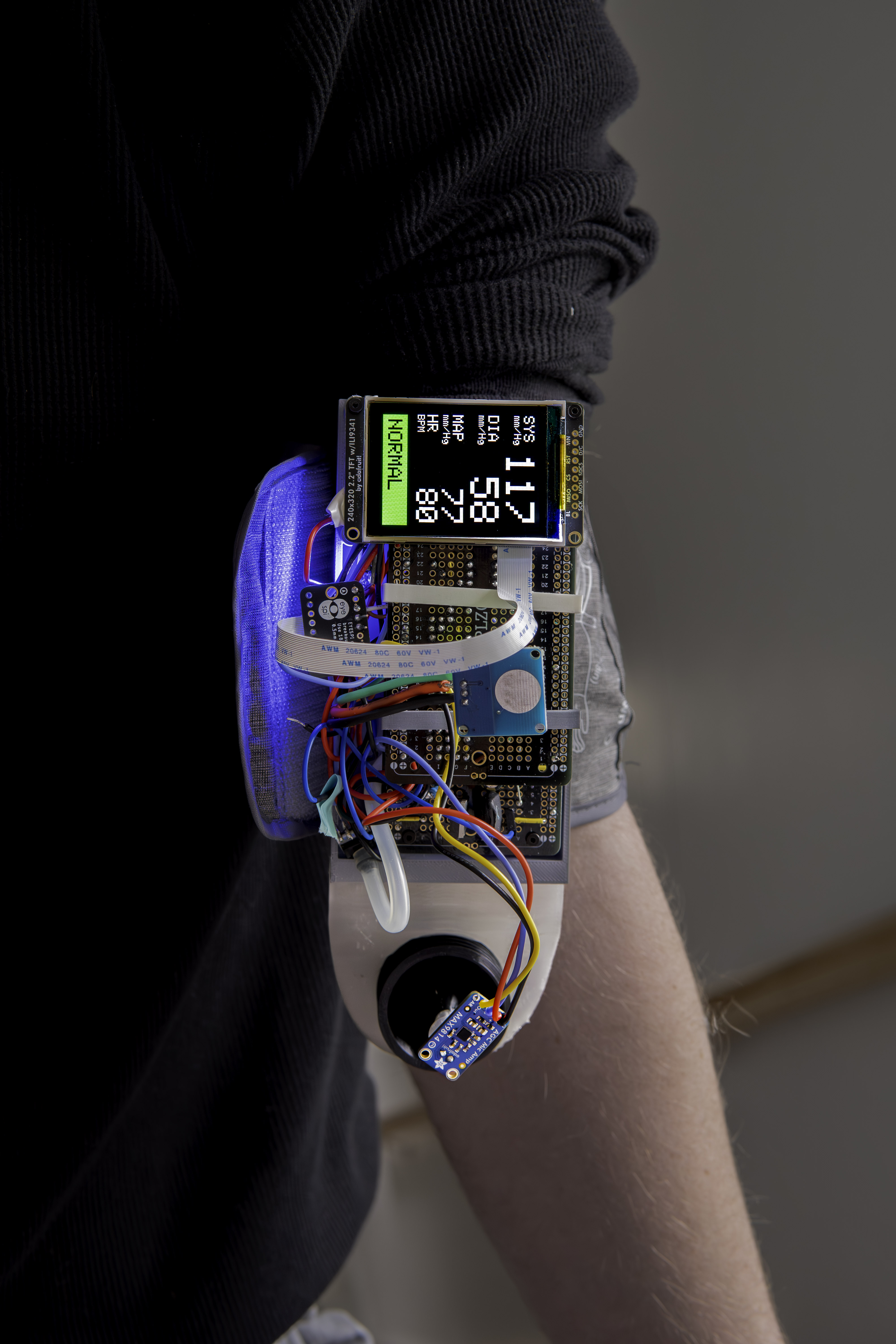Accurate, Auditory-Based Blood Pressure Monitor
The ACCURATE, AUDITORY-BASED BLOOD PRESSURE MONITOR project focuses on developing a highly accurate home-use blood pressure monitor with precision comparable to clinical standards, targeting an accuracy within ±5 mmHg. This project integrates advanced technology and innovative design to provide users with dependable and precise readings, addressing the need for reliable, user-friendly home healthcare devices that support better hypertension management. Accurate monitoring is essential for early detection and treatment adjustments, ultimately improving health outcomes and accessibility—especially in regions with limited medical facilities.
This was a group project, and I was responsible for the entire physical design of the device, including the cuff, stethoscope placement, and electronics housing. I also designed and implemented the display system, writing the initial code to get it running before passing it to the programming team to integrate blood pressure data. Additionally, I was in charge of the pump and inflation system, ensuring reliable operation and smooth integration with the overall design.

Proof of concept
Our blood pressure monitor demonstrates the feasibility of achieving clinical-grade accuracy in an at-home device by combining innovative design, advanced algorithms, and user-friendly features. In testing, the device consistently achieved an average accuracy of ±1.95 mmHg for systolic pressure and ±0.09 mmHg for diastolic pressure under ideal conditions, outperforming many commercially available oscillometric monitors. However, accuracy under non-ideal conditions, such as environments with high noise or irregular heart rates, revealed opportunities for refinement.
This proof-of-concept highlights the potential of an auditory-based approach, supported by custom stethoscope designs, optimized filtering circuits, and a machine learning algorithm tailored to detect Korotkoff sounds. While the current design meets stringent clinical standards in controlled scenarios, we are committed to addressing limitations such as noise sensitivity, sensor bias at higher pressures, and variability in heart rates.
Future iterations will incorporate active noise cancellation, adaptive algorithms for real-time heart rate variability, and improved sensor calibration. Additionally, broader demographic testing will ensure accuracy across diverse user conditions. This project is a step toward revolutionizing at-home healthcare, and we are excited to refine and expand its capabilities in the next version.